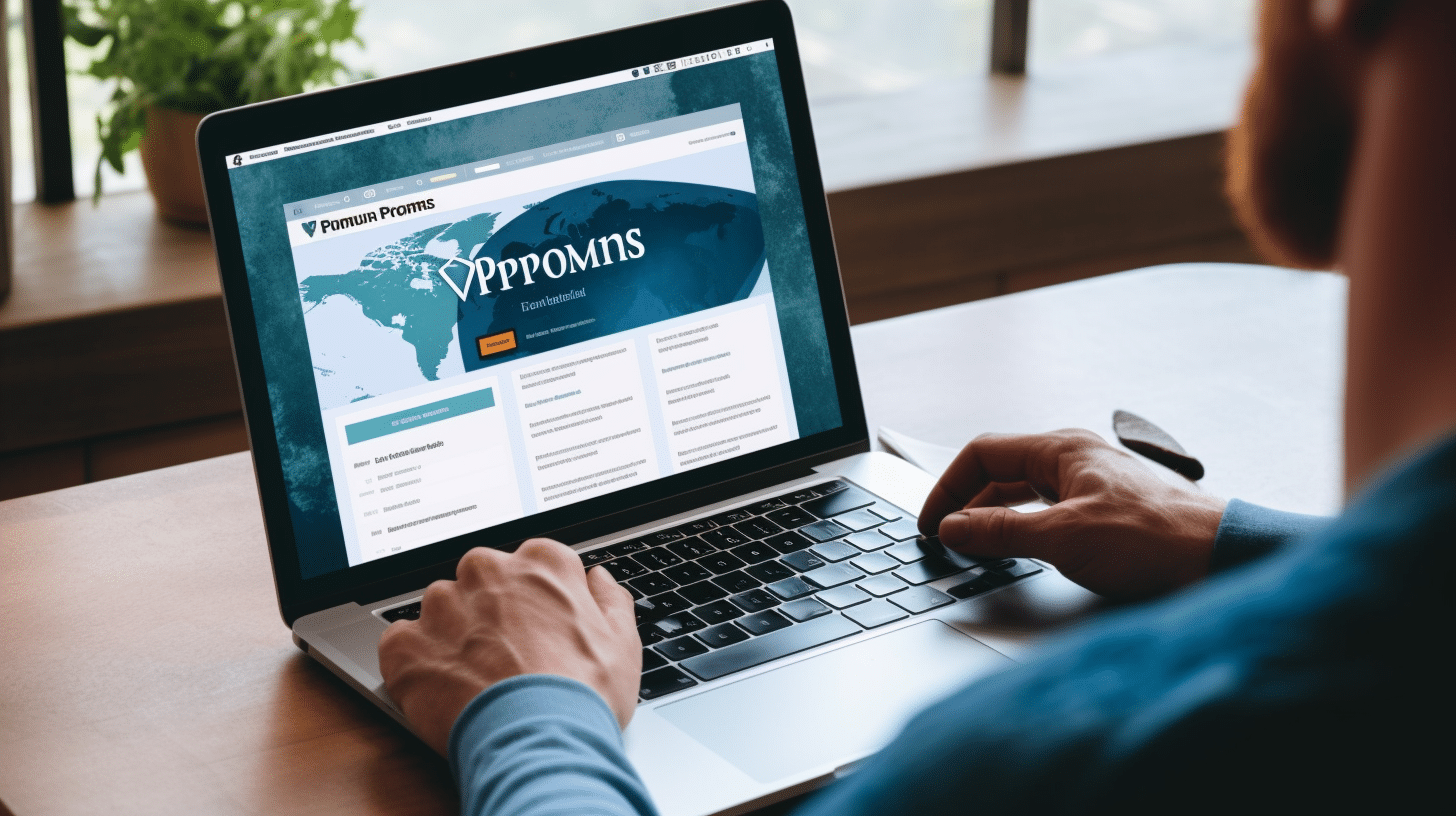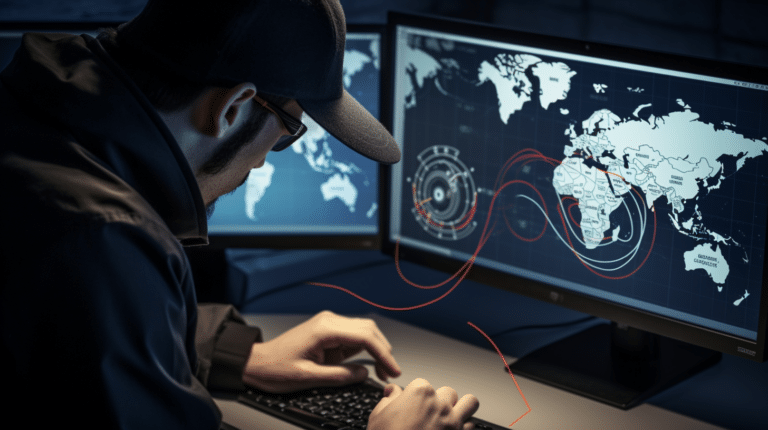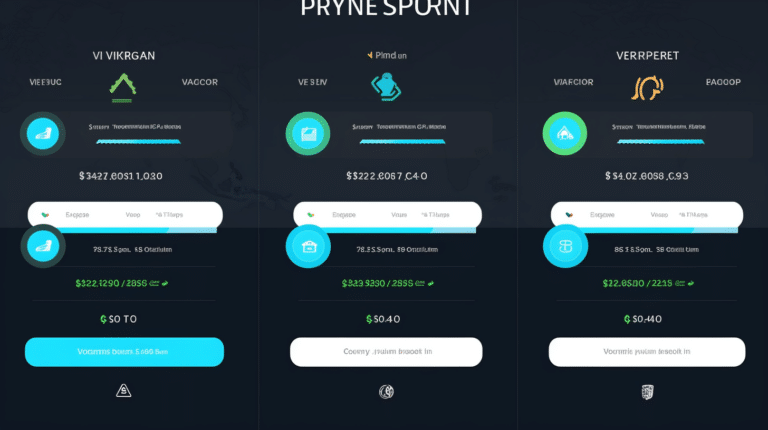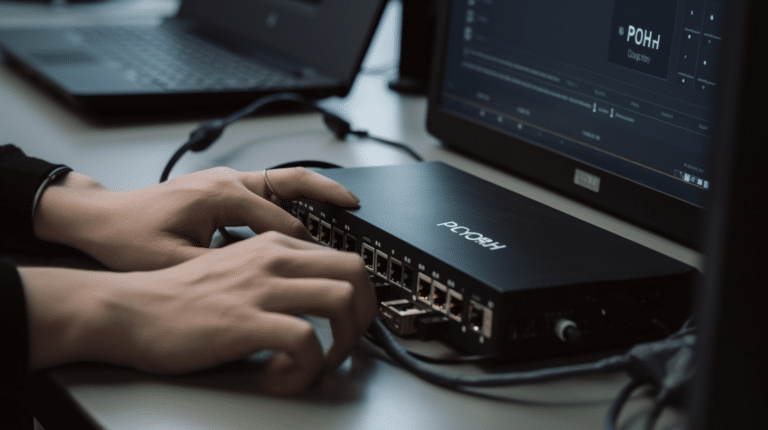In today’s online world, protecting your privacy and security is more critical than ever. One of the most effective ways to achieve this is through the use of a Virtual Private Network (VPN). A VPN creates a secure, encrypted connection between your computer and a VPN server at a different location, ensuring your browsing activity remains private and safe from prying eyes. Whether you’re a beginner or an expert, understanding the basics of how VPNs work and their advantages can profoundly impact your online experience.
VPNs offer a variety of benefits, such as allowing users to access region-restricted websites and providing an additional layer of security when using public Wi-Fi networks. These services come in various shapes and sizes, making the process of finding one that fits your needs a relatively simple task. By learning about VPNs’ essentials and carefully selecting a service tailored to your requirements, you can protect your online data and access a wealth of information from around the world unrestricted by geographical boundaries.
Key Takeaways
- VPNs protect your privacy and security by creating an encrypted connection between your computer and a remote server
- Users can access region-restricted content and safeguard data on public Wi-Fi networks through VPNs
- Choosing and setting up a VPN service is often a simple process that can significantly enhance your online experience
Understanding VPNs
What is a VPN?
A VPN, or Virtual Private Network, is a technology that allows you to create a secure connection to another network over the internet. It is used primarily for enhancing online security and privacy by encrypting your data and hiding your virtual location. In today’s digital world, using a VPN has become increasingly important for maintaining privacy and avoiding unsecured public Wi-Fi networks.
How VPNs Work
VPNs work by establishing an encrypted tunnel between your device and a VPN server. This encrypted tunnel effectively routes your internet traffic away from your ISP (Internet Service Provider) and any potential observers. It also masks your IP address, making it appear as if you are accessing the internet from the server’s location rather than your actual location. This helps maintain your anonymity and protect your data from being intercepted.
The encryption used in VPNs ensures that any data passing through the tunnel is secure and unreadable to anyone who might attempt to intercept it. Most VPNs use a variety of encryption protocols, such as OpenVPN or WireGuard, which provide different levels of security, speed, and compatibility with various devices.
Importance of VPNs
The importance of VPNs in today’s digital landscape cannot be overstated. Here are a few key reasons why using a VPN is essential:
- Enhanced Security: VPNs provide a secure and encrypted connection that protects your data from hackers, government surveillance, and cybercriminals. This is especially critical when using public Wi-Fi networks, where your data is more vulnerable to attacks.
- Privacy Protection: By masking your IP address and routing your internet traffic through an encrypted tunnel, VPNs help maintain your online privacy. This prevents websites, ISPs, and other data collection entities from easily tracking your online activity.
- Access to Restricted Content: VPNs can be used to bypass geo-restrictions and access content that is blocked or unavailable in your region, such as streaming services or websites censored by governments.
- Avoiding Throttling: Some ISPs may throttle your internet speed during peak usage times or based on the type of content you are accessing. Using a VPN can prevent throttling by making it difficult for the ISP to identify your online activities.
Overall, VPNs play a vital role in ensuring your online communication remains private and secure.
Choosing a VPN Service
Factors to Consider
When looking for a VPN service, there are several factors to keep in mind:
- Server locations: To access the content of a specific country or to bypass geo-restrictions, you’ll need a VPN provider with servers in that location.
- Ease of use: Look for a VPN app that is user-friendly, especially if you’re new to VPNs.
- Speed: A good VPN service should provide fast connections, as VPNs can sometimes slow down your internet.
- Customer support: Reliable customer support is essential in case of technical issues or questions about the service.
- Privacy and security features: Make sure the VPN provider has strong encryption, a no-logs policy, and additional security features such as a kill switch.
Best VPN Choices
Based on the factors mentioned above, here are some VPN services to consider:
- NordVPN: This provider offers a user-friendly app, an extensive server network, and top-notch security features. It’s suitable for beginners and experienced users alike.
- Private Internet Access (PIA): PIA is an affordable VPN option with a wide range of server locations. It offers fast speeds and a 30-day money-back guarantee.
- ExpressVPN: With a reputation for high-speed connections and excellent customer support, ExpressVPN is a solid choice for anyone looking to use a VPN service.
Remember to consider your personal needs and preferences when selecting a VPN service, as each provider may offer different features and options.
VPN Software and Platforms
When it comes to using a VPN, compatibility with your device and platform is essential. There are many VPN services offering dedicated apps and software for various platforms, including Windows, Android, and iOS. This ensures a seamless experience for users looking for privacy and security on different devices.
VPN for Windows
Windows is a widely used operating system, and VPN providers are aware of this. Many VPNs offer dedicated Windows-compatible applications that can be easily downloaded and installed on your computer. To find a suitable VPN for Windows, opt for one that has an intuitive user interface, reliability, and robust security features. Most VPN apps allow users to connect to a server with just a few clicks, making them user-friendly even for beginners.
VPN for Android
Android is the most popular mobile operating system globally, running on a wide range of smartphones and tablets. A robust VPN app for Android should be available on the Google Play Store. Look for a VPN app that allows you to choose from multiple server locations, supports OpenVPN or other secure protocols, includes a kill switch feature, and does not contain any ads. A well-designed VPN app should be easy to navigate and provide a straightforward way to protect your online privacy.
VPN for iOS
Apple’s iOS is another platform commonly targeted by VPN providers. iOS users can find various VPN apps on the App Store, designed specifically for iPhone and iPad. Similar to Android apps, VPN apps for iOS should offer multiple server locations, robust security features, and a user-friendly interface. Additionally, it is crucial to ensure that the VPN service you choose for iOS adheres to Apple’s strict privacy guidelines and does not collect any unnecessary data.
Remember to select a VPN service that caters to your specific platform needs while emphasizing security and ease-of-use. By using a suitable VPN app, you can confidently browse the internet with an additional layer of privacy and safeguard your sensitive information across different devices.
The Benefits of Using a VPN
A VPN, or Virtual Private Network, is a valuable tool that helps users maintain security and privacy while using the internet. In this section, we will discuss the advantages of using a VPN in terms of security and privacy.
Security Advantages
One significant benefit of using a VPN is the enhancement of your security when browsing the internet. A VPN creates a secure, encrypted connection between your device and the VPN server, ensuring that your data remains protected as it traverses the internet. This encrypted connection defends against eavesdroppers, hackers, and other malicious actors trying to access your information.
When connecting to public Wi-Fi networks, such as those in coffee shops or airports, using a VPN is crucial to protect your data. These networks can be unsecured and easily exploited by attackers. A VPN can prevent them from intercepting your data by encrypting your connection.
Privacy Benefits
Another essential advantage of using a VPN is the preservation of your online privacy. When you use a VPN, your internet service provider (ISP) and other entities cannot easily monitor or track your browsing activity. This is because the VPN masks your browsing data and routes your traffic through the VPN server, obscuring your true IP address and making it difficult for third parties to track your online movements.
Furthermore, a reliable VPN provider typically operates under a strict no-logging policy, meaning that they do not store information about your browsing habits. This adds an extra layer of privacy when compared to ISPs, which might collect and sell your data to third parties.
In conclusion, using a VPN has clear advantages in terms of security and privacy. By creating a secure, encrypted connection between your device and a VPN server, you can protect your data from potential threats and maintain your privacy while browsing the internet.
Potential Issues with VPNs
While VPNs offer many benefits, it’s important to be aware of the potential issues that might arise when using them. In this section, we’ll examine three key concerns: speed and bandwidth limitations, legal considerations, and potential security concerns.
Speed and Bandwidth Limitations
Using a VPN can sometimes result in slower internet speeds due to the additional step of routing your connection through an encrypted tunnel. This might be especially noticeable when streaming content or engaging in bandwidth-heavy activities. Some VPN providers impose limits on the amount of bandwidth you may consume, which could affect the overall performance of your connection.
To address these issues, consider opting for a VPN provider that offers high-speed servers and unlimited bandwidth. Additionally, choosing a server location close to your physical location can help improve the connection speed.
Legal Considerations
While VPNs are generally legal to use, it’s essential to be aware of the specific rules and regulations in your country or region. Some countries have restrictions or outright bans on VPN usage, which could lead to legal consequences if you’re caught using one. Moreover, while VPNs offer anonymity, they should not be used for illegal activities or circumventing geo-restrictions on copyrighted content.
It’s crucial to familiarize yourself with the legal landscape concerning VPN usage where you live and abide by those regulations. Always remember that the primary purpose of a VPN is to enhance online security and privacy, not to facilitate unlawful behavior.
Potential Security Concerns
Although VPNs are designed to protect your online security and privacy, not all providers are created equal. Some may have weaker encryption standards or less secure VPN protocols, leaving you vulnerable to hackers or data breaches. Additionally, some free VPN services may log your browsing activity or sell your data to third parties, negating the privacy benefits they are supposed to provide.
To ensure the security of your VPN connection, opt for a reputable VPN provider that uses strong encryption methods and adheres to a strict no-logging policy. Research the provider’s track record to confirm their commitment to user privacy and protection.
Advanced VPN Features and Technologies
In this section, we will discuss some advanced features and technologies used by VPN services. These features help enhance the security, performance, and functionality of a VPN connection.
OpenVPN and Other Protocols
OpenVPN is a popular open-source VPN protocol that offers secure point-to-point connections between devices. It is often considered one of the most secure and reliable protocols available for VPN use. In addition to OpenVPN, VPN providers may offer other protocols such as L2TP/IPsec, SSTP, IKEv2, and the more recent WireGuard. Each protocol has its advantages and disadvantages, and some might be better suited for specific use cases or platforms.
VPN Extensions
Some VPN providers offer VPN extensions for popular web browsers like Chrome, Firefox, or Safari. These extensions make it easy for users to quickly enable or disable VPN connections directly from their browsers, providing an added layer of privacy and security while browsing the web. Keep in mind that a VPN extension typically only secures your browser traffic, so you may still need a full VPN client for other applications.
Use of Proxies and Other Tools
VPNs can also be used in conjunction with proxy servers and other tools, such as the Tor network, to further enhance online privacy and security. A proxy server acts as an intermediary between your device and the internet, while a VPN encrypts your connection and routes your traffic through a secure server. By combining these tools, users can increase their level of anonymity and protection online.
The Tor network is another privacy-enhancing technology that allows users to browse the web anonymously by routing their traffic through a series of volunteer-operated nodes. Using a VPN with Tor can further increase your online privacy by adding an additional layer of encryption to your connection.
In summary, advanced VPN features and technologies can significantly improve your online privacy and security. By understanding these options and choosing the right VPN provider, you can better protect your personal information and online activities.
Securing Your VPN
Proper Setup
To ensure your VPN connection is secure and offers optimal protection, the proper setup is essential. Start by choosing a trustworthy, reputable VPN provider that offers strong encryption for your connection. Make sure to use a VPN with up-to-date and robust security protocols, like OpenVPN or WireGuard.
Install the VPN client on your device, making sure to follow the provider’s instructions carefully. It’s also a good idea to enable the VPN’s kill switch feature, which disconnects your internet connection if the VPN fails, preventing your IP address or personal data from being exposed.
Preventing Leaks
VPN leaks may expose your sensitive information, even when connected to a VPN service. There are common leaks to be aware of:
- DNS leaks: Occur when your DNS requests are still going through your ISP, instead of the VPN tunnel.
- IP leaks: Occur when your real IP address is exposed, even with an active VPN connection.
- WebRTC leaks: Occur due to a browser vulnerability, typically in Chrome, Firefox, and Opera browsers.
To prevent these leaks, ensure your VPN provider offers built-in leak protection. Additionally, consider using a private DNS service, disabling WebRTC in your browser, and regularly testing for leaks using tools like /ipleak.net/.
Additional Security Measures
While VPNs significantly enhance your online security, you can take additional steps to maximize protection:
- Firewall: Employ a firewall to monitor and control incoming and outgoing network traffic based on predetermined security rules. This adds an extra layer of security, but ensure that your VPN is correctly configured to work with your firewall.
- Antivirus software: Keep your devices secure by using quality antivirus software to protect against malware, keyloggers, and other cyber threats.
- Two-factor authentication (2FA): Enable 2FA on your VPN account and any other online accounts, to add extra security to your login process.
- Use HTTPS: Always use websites with HTTPS, which encrypts your data, making it more difficult for hackers to intercept your information.
By following these guidelines, your VPN connection will be more secure, providing the privacy and protection you need while browsing the internet.
How VPNs Impact Your Internet Use
Impact on Speed and Streaming
Using a VPN can have an impact on your internet speed. This is primarily because a VPN routes your internet traffic through an additional server, encrypting it and potentially causing a slight decrease in speed. However, depending on the quality of the VPN service you choose, this impact can be minimal and often unnoticeable. For streaming purposes, a reliable VPN service should maintain good speed and performance, allowing you to enjoy your favorite content without major disruptions. How VPNs affect Internet speed.
Geographic Restrictions
A significant advantage of using a VPN is its ability to bypass geographic restrictions on content. By changing your virtual location, a VPN allows you to access region-restricted websites and streaming services that you might not otherwise be able to access. This can be particularly useful for internet users who want to watch content from other countries or access services that are limited to specific locations. However, it is essential to choose a VPN service that offers servers in the desired regions to unlock this benefit effectively. What Is a VPN, and Why Would I Need One?.
Online Activities
Another significant impact of using a VPN is the increase of privacy and security during your online activities. A VPN encrypts your internet traffic, making it virtually invisible to anyone on the outside, including your ISP. Consequently, your browsing history, online transactions, and other sensitive data are protected from hackers or anyone attempting to snoop on your online activities. Additionally, VPNs can also help you maintain anonymity when using services like BitTorrent, which may track your real IP address. Using a VPN is regarded as a best practice for ensuring your privacy and security while using the internet How does a VPN work?.
Conclusion
In summary, a VPN (Virtual Private Network) is an essential tool for individuals looking to protect their online privacy and security. By encrypting your internet traffic and disguising your online identity, VPNs make it more difficult for third parties to track your activities and steal data Kaspersky.
A VPN acts as a secure tunnel for your data, ensuring that it is properly encrypted and protected from outside parties monitoring or intercepting your transfers freeCodeCamp. This is especially important when using public networks, where your sensitive information could be at risk.
There are many benefits of using a VPN, including:
- Privacy: Keep your browsing habits and personal data private from hackers, advertisers, and other prying eyes.
- Security: Protect your devices and data from cyber attacks, especially when connected to public Wi-Fi networks.
- Access to Geo-Restricted Content: Bypass geographic restrictions on websites, streaming platforms, and online gaming.
It is important to choose a reliable and secure VPN provider, as not all services are created equal. Factors to consider when selecting your VPN solution include the level of encryption, the provider’s privacy policy, and any additional features that cater to your unique needs.
To sum up, using a VPN is a smart choice for anyone seeking to enhance their online privacy and security. By taking the time to understand the basics and carefully choosing a trustworthy provider, you can enjoy the benefits of a secure and unrestricted internet experience.
Frequently Asked Questions
What are the basics of using a VPN?
A VPN (Virtual Private Network) is a service that encrypts your internet connection and hides your IP address, providing more security and privacy. To use a VPN, simply download the VPN service app on your device and follow the on-screen instructions to set it up. Connect to a VPN server, and enjoy a more secure browsing experience. For more details, check out this VPN for beginners guide.
How does a VPN work with streaming services?
VPNs allow you to access content from other geographical regions by connecting to a server in that location. This can help you bypass geo-restrictions and access your favorite streaming services from around the world.
Can I use a VPN on my iPhone?
Yes, you can use a VPN on your iPhone. Most VPN service providers offer dedicated apps for iOS devices. Simply head to the App Store, download the VPN app, and follow the setup process.
What are the best VPNs for beginners?
Some of the best VPNs for beginners include NordVPN, ExpressVPN, and CyberGhost. These services offer user-friendly interfaces, comprehensive tutorials, and responsive customer support, making them accessible to first-time users.
Why is a VPN important for online privacy?
Using a VPN secures your online activities by encrypting your data and masking your IP address. This helps keep your personal information safe and prevents third parties, such as hackers or advertisers, from tracking your online activities. Read more about encryption and VPNs here.
How do I choose the right VPN for my needs?
When choosing a VPN, consider factors like server locations, price, speed, privacy policies, and device compatibility. Determine your needs and prioritize features accordingly. Don’t forget to research VPN providers and read reviews to ensure you’re selecting a reputable and reliable service.






